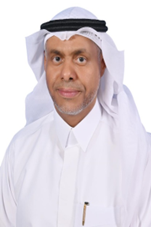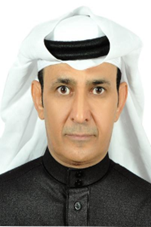
مرحباً بكم في منصة مجلة الجامعة الإسلامية للعلوم التربوية والاجتماعية
النسخة الإلكترونية - الرقم التسلسلي الدولي للدوريات (ردمد) 8495-1658
أرقام المجلة
أبحاث
إصدارات المجلة
عضو
عن المجلة
* مجلة الجامعة الإسلامية للعلوم التربوية والاجتماعية:
مجلة علميّة محكّمة؛ تصدر أربع مرّات في العام خلال الأشهر (مارس ، يونيو ، سبتمبر ، ديسمبر)؛ تهدف إلى إثراء حركة البحث العلمي في الجامعة الإسلامية، والتعاون والتواصل مع الباحثين في كل مكان؛ لنشر إنتاجهم العلمي الأصيل.
* الرؤية:
- الريادة في نشر الأبحاث العلمية الرصينة في مجال العلوم التربوية والاجتماعية، والعمل لتكون مصدراً للمعرفة ضمن أشهر الدوريات العالمية.
* الرسالة:
- نشر البحث العلمي المتميز بالأصالة والجدة بما يحقق أهداف الجامعة، وإضافة المعرفة المميزة بما يخدم المجتمع المحلي والعالمي.
* الأهداف:
- الإسهام الفاعل في تنمية حركة البحث العلمي في الجامعة الإسلاميةّ.
- مد جسور التعاون والتواصل مع الباحثين من كل مكان ونشر نتاجهم العلمي الأصيل.
- خدمة المجتمع من خلال نشر الدراسات القيمّة، وتبنيّ الكتابة في القضايا والمستجداّت المعاصرة؛ مماّ يقع في اختصاصات المجلةّ
ب- المصادر العربية التي يحسن أن تترجم عناوينها لبيان مضمونها تترجم عناوينها باللغة الإنجليزية، كما في المثال الآتي: شكل المثال في قائمة المصادر العربية:
إجراءات التحكيم بمجلة الجامعة الإسلامية للعلوم التربوية والاجتماعية:
1. يرسل الباحث نسختين من بحثه إلى المجلة إلكترونيّاً بصيغة ( word ) و (PDF) تكون إحداهما خالية مما يدل على شخصية الباحث.
2. إرفاق سيرة ذاتية مختصرة في صفحة واحدة حسب النموذج المعتمد للمجلة.
3. يرفق الباحث تعهّداً خطّيّاً حسب النموذج المعتمد للمجلة؛ يتعهد فيه أن بحثه يتفق مع شروط المجلة، وذلك على النحو الآتي:
أ. البحث الذي تقدمت به ليس منشورا أو مقدما للنشر في مؤتمر أو مجلة أو غيرها من منافذ النشر العلمية والجهات البحثية.
ب. البحث الذي تقدمت به ليس مستلا من بحوث أو كتب سبق نشرها أو قدمت للنشر، وليس مستلاًّ من أطروحة الدكتوراة أو الماجستير سواء بنظام الرسالة أو المشروع البحثي أو المقررات.
ج. الالتزام بالأمانة العلمية وأخلاقيات البحث العلمي.
د. مراعاة منهج البحث العلمي وقواعده.
4. لهيئة تحرير المجلة حق الفحص الأوّلي للبحث، وتقرير أهليته للتحكيم، أو ردّه، ويخطر الباحث بذلك.
5. حال تقرر أهلية البحث للتحكيم يرسل البحث لمحكِّمين اثنين؛ على الأقل.
6. فـي حال اكتمال تقارير المحكّمين عن البحث؛ يتم إرسال خطاب للباحث يتضمّن إحدى الحالات التّالية:
أ. قبول البحث للنشر مباشرة .
ب. قبول البحث للنّشر؛ بعد التّعديل .
ج. تعديل البحث ، ثمّ إعادة تحكيمه .
د. الاعتذار عن قبول البحث ونشره.
7. إذا لم يلتزم الباحث بإجراء التّعديلات في الوقت (عشرة أيام من تاريخ الخطاب) المحدّد يُعتذر له.
8. لهيئة تحرير المجلة الحق فـي تحديد أولويات نشر البحوث، وترتيبها فنّيّاً.
أعضاء المجلة
هيئة تحرير المجلّة
رئيس التحرير

أ.د. عبدالرحمن بن علي الجهني
أستاذ أصول التربية بالجامعة الإسلامية بالمدينة المنورة
https://orcid.org/0009-0001-0629-5239
مدير التّحرير

أ.د. محمد بن جزاء الحربي
أستاذ أصول التربية بالجامعة الإسلامية بالمدينة المنورة
https://orcid.org/0009-0006-6030-004X
أعضاء التّحرير
المحرر

معالي أ.د. راتب بن سلامة السعود
وزير التعليم العالي الأردني سابقاً، وأستاذ الإدارة التربوية في الجامعة الأردنية
https://orcid.org/0009-0008-6879-1669
المحرر

أ.د. محمد بن إبراهيم الدغيري
وكيل جامعة شقراء للدراسات العليا والبحث العلمي وأستاذ الجغرافيا الاقتصادية بجامعة القصيم
https://orcid.org/0009-0000-3317-4419
المحرر

أ.د. علي بن حسن الأحمدي
أستاذ المناهج وطرق التدريس بالجامعة الإسلامية بالمدينة المنورة
https://orcid.org/0000-0002-2688-2174
المحرر

أ.د. أحمد بن محمد النشوان
أستاذ المناهج وتطوير العلوم بجامعة الإمام محمد بن سعود الإسلامية
https://orcid.org/0009-0004-1302-5319
المحرر

أ.د. صبحي بن سعيد الحارثي
أستاذ علم النفس بجامعة أم القرى
https://orcid.org/0009-0004-3786-6016
المحرر

أ.د. حمدي أحمد بن عبدالعزيز أحمد
عميد كلية التعليم الإلكتروني وأستاذ المناهج وتصميم التعليم بجامعة حمدان الذكية بدبي الإمارات العربية المتحدة
https://orcid.org/0000-0003-3679-8117
المحرر

أ.د. أشرف بن محمد عبد الحميد
أستاذ ورئيس قسم الصحة النفسية بجامعة الزقازيق بمصر
https://orcid.org/0009-0007-9450-5518
المحرر

د. رجاء بن عتيق المعيلي الحربي
أستاذ التاريخ الحديث والمعاصر المشارك بالجامعة الإسلامية بالمدينة المنورة
https://orcid.org/0009-0003-1541-4556
المحرر

د. منصور بن سعد فرغل
أستاذ الإدارة التربوية المشارك بالجامعة الإسلامية بالمدينة المنورة
https://orcid.org/0009-0009-6421-4239
الهيئة الاستشارية للمجلة
المحرر
معالي أ.د. محمد بن عبدالله آل ناجي
مدير جامعة حفر الباطن سابقا
المحرر
معالي أ.د. سعيد بن عمر آل عمر
مدير جامعة الحدود الشمالية
المحرر
معالي د. حسام بن عبدالوهاب زمان
رئيس هيئة تقويم التعليم والتدريب سابقاً
المحرر
أ.د. سليمان بن محمد البلوشي
عميد كلية التربية بجامعة السلطان قابوس سابقاً
المحرر
أ.د. خالد بن حامد الحازمي
أستاذ التربية الإسلامية بالجامعة الإسلامية سابقاً
المحرر
أ.د. سعيد بن فالح المغامسي
أستاذ الإدارة التربوية بالجامعة الإسلامية سابقاً
المحرر
أ.د. عبدالله بن ناصر الوليعي
أستاذ الجغرافيا بجامعة الملك سعود
المحرر
أ.د محمد بن يوسف عفيفي
أستاذ أصول التربية بالجامعة الإسلامية
الموظفون
عضو
م. محمد بن حسن الشريف
الإخراج والتنفيذ الفني
عضو
أ. محمد بن سعد الشال
المنسق العلمي للمجلة
عضو
أ. أحمد شفاق حامد علي
سكرتارية المجلة